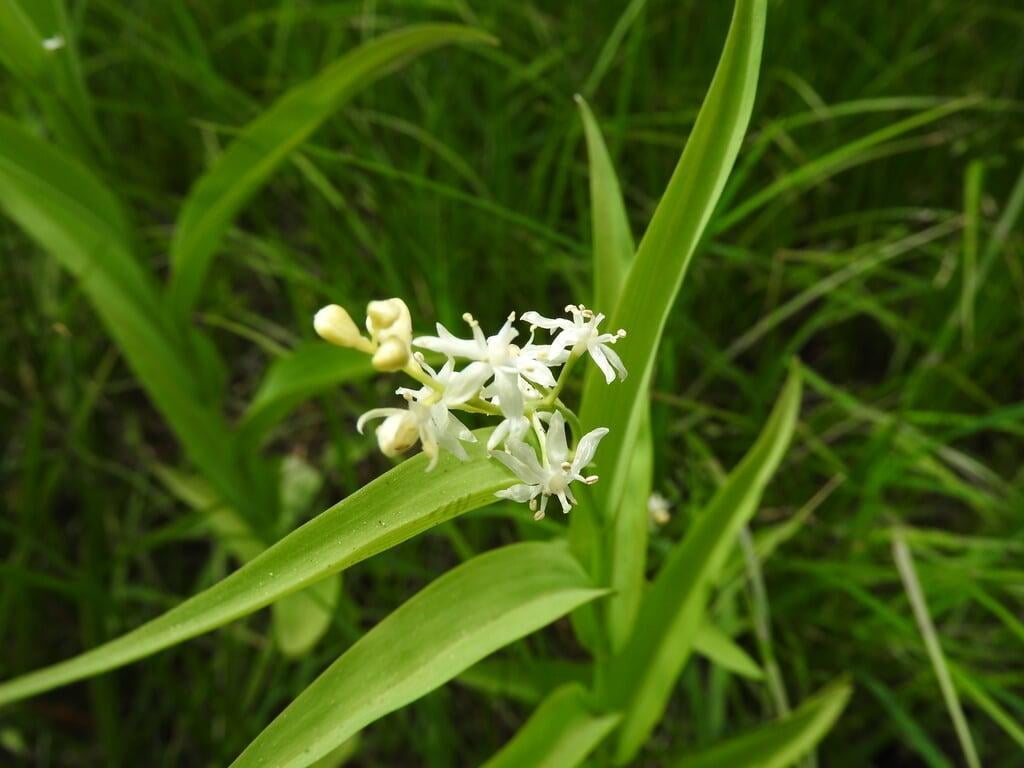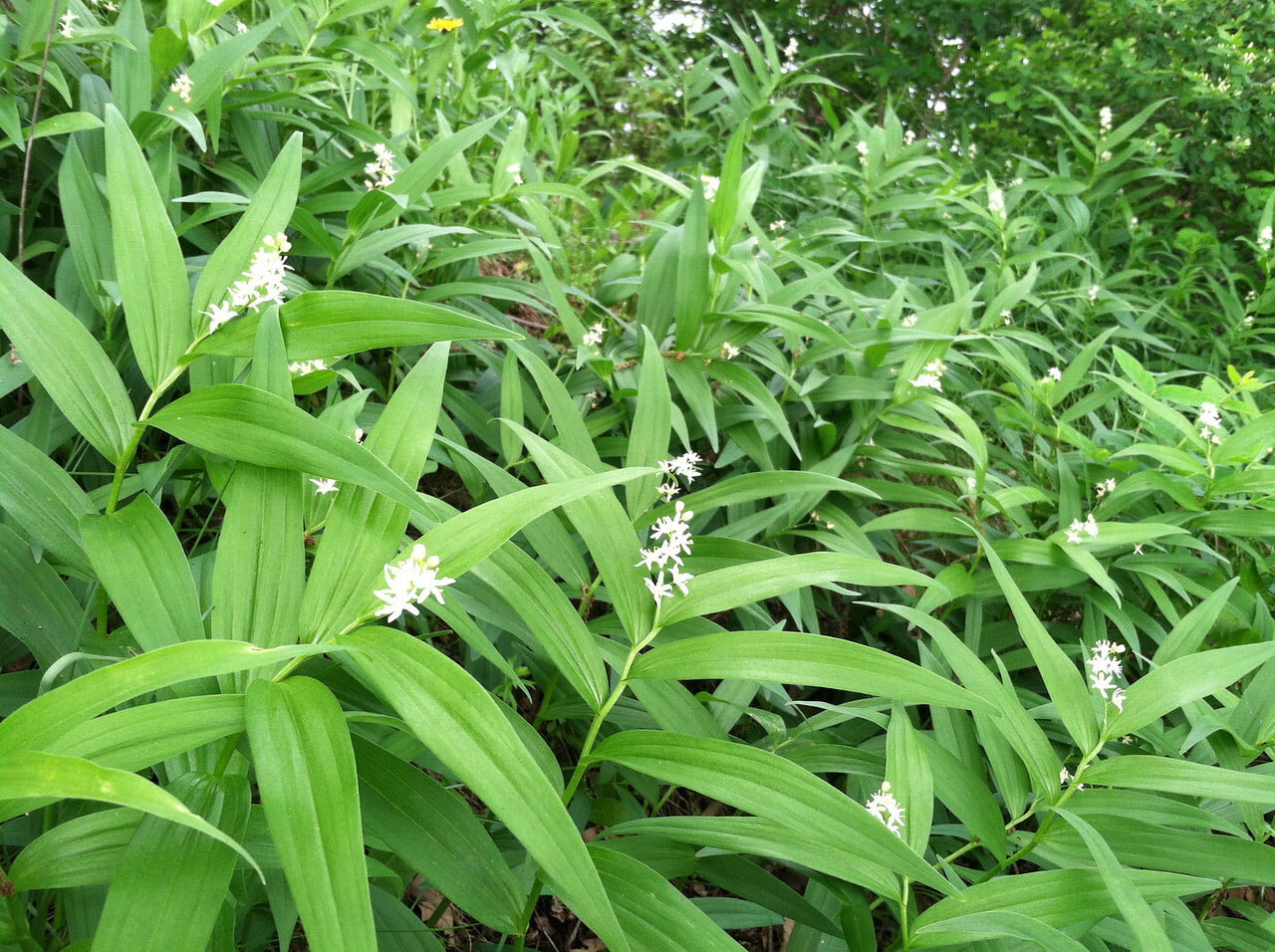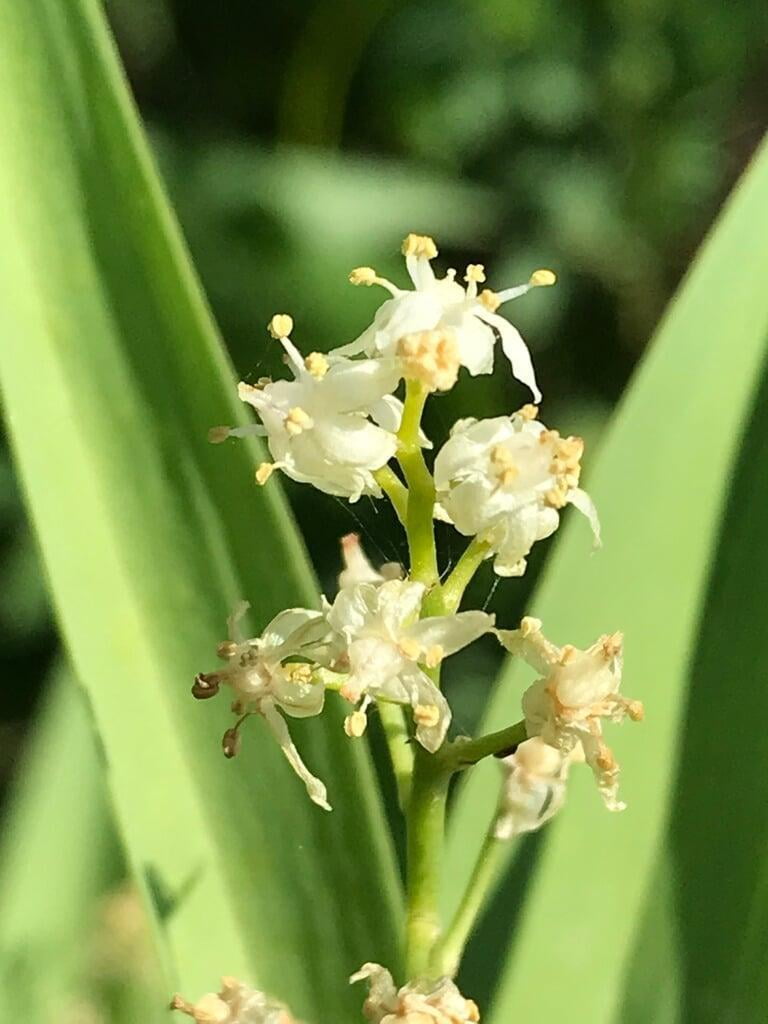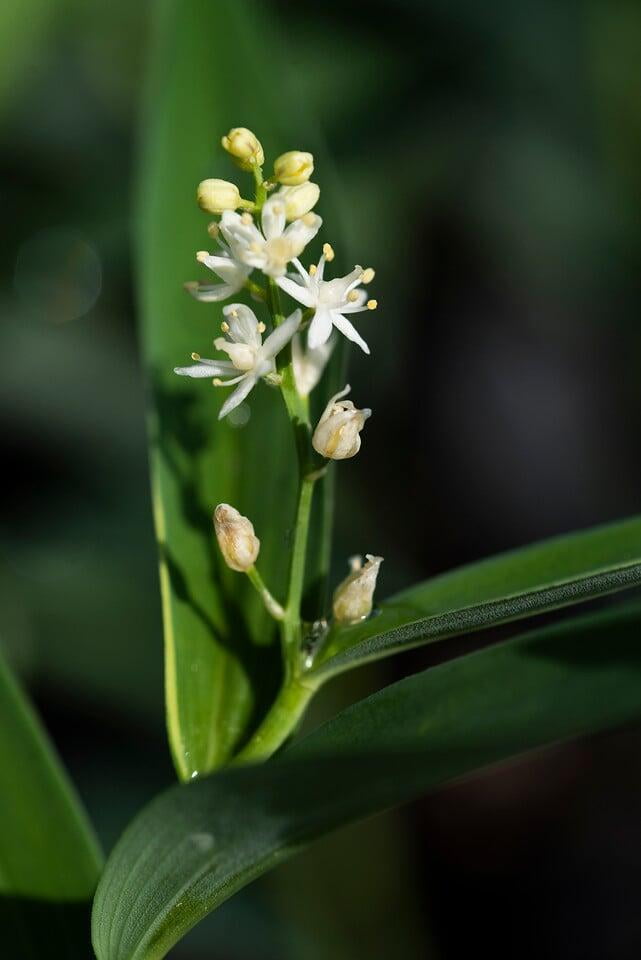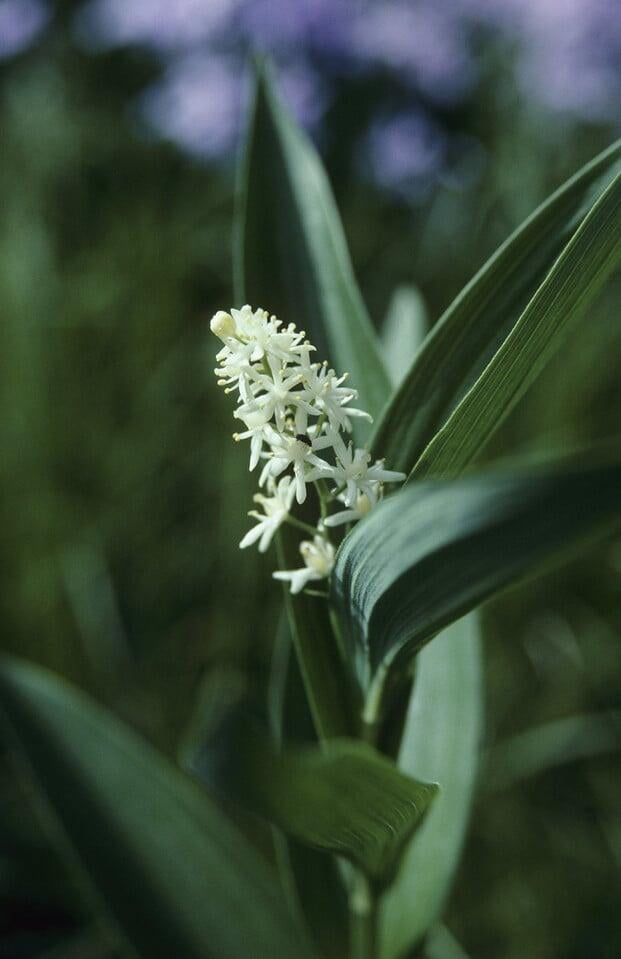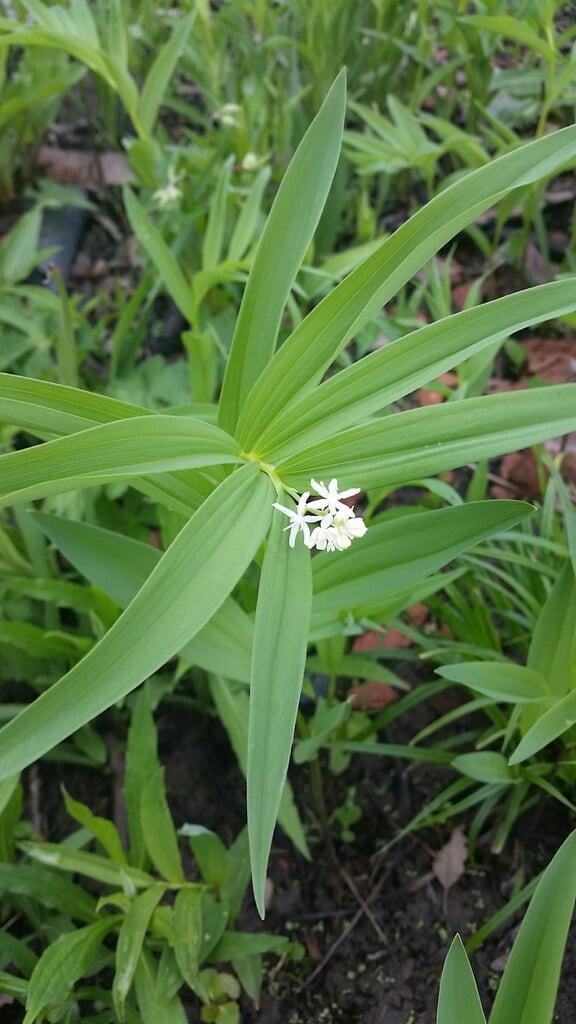Maianthemum stellatum
Starry solomon's seal Description:
Maianthemum stellatum, commonly known as starry false lily of the valley, is a herbaceous perennial plant that is native to North America. It is a member of the lily family and is found growing in a variety of habitats, including woodlands, forest edges, and meadows.
The plant grows up to 30 inches in height and forms a dense mat of foliage. It has arching stems that emerge from underground rhizomes and are topped with clusters of small, white, star-shaped flowers. The flowers are typically arranged in a terminal raceme that can be up to 10 inches long. The flowers are followed by red berries that are an important food source for birds and small mammals.
The plant has lance-shaped leaves that grow up to 4 inches (10 cm) long and are arranged alternately along the stem. The leaves are dark green in color and have a smooth, waxy texture.
Starry false lily of the valley is a popular garden plant and can be grown in moist, well-drained soil in partial to full shade. It is a good choice for woodland gardens, rock gardens, and shade gardens, as well as for groundcover in shaded areas. The plant has a number of medicinal uses and has been traditionally used as a herbal remedy for a variety of ailments, including as a treatment for respiratory issues.
Native Range:
Starry solomon's seal is found natively across most of the United States with the exception of the South and Southeastern portions of the country.
Standard Plant Information:
Plant Height: 12" - 30"
Bloom Time: May - June
Preferred Habitat: Does well in part shade to full sun. Often found in moist meadows, woodland edges, and shorelines.
Sowing:
For most homeowners, the best option is to scatter seed on the ground by hand broadcasting at a minimum of 16-64 pls ounces per acre. For even coverage, we recommend that you broadcast seed in perpendicular rows across the site to ensure even coverage.
You’ll want to broadcast any grass seed first, which will get raked into the soil lightly. Next, it is ideal to mulch the area lightly with either a clean (no seed) straw or preferably with our native Little Bluestem straw, sold at our retail garden centers. After a light mulching is complete, now it’s time to broadcast your native wildflower seeds, which should not be raked into the soil. A good rain or watering is sufficient to cover the seed.
Planting:
Simply dig a hole in the soil slightly larger than the plant’s roots. Ensure that the soil line of the plant is maintained during the transfer (i.e. the plant should be at the same level with the ground as it was in the pot). Pack any loose dirt back around the plant and make sure you water it well the same day to ensure it has the best chance of survival.
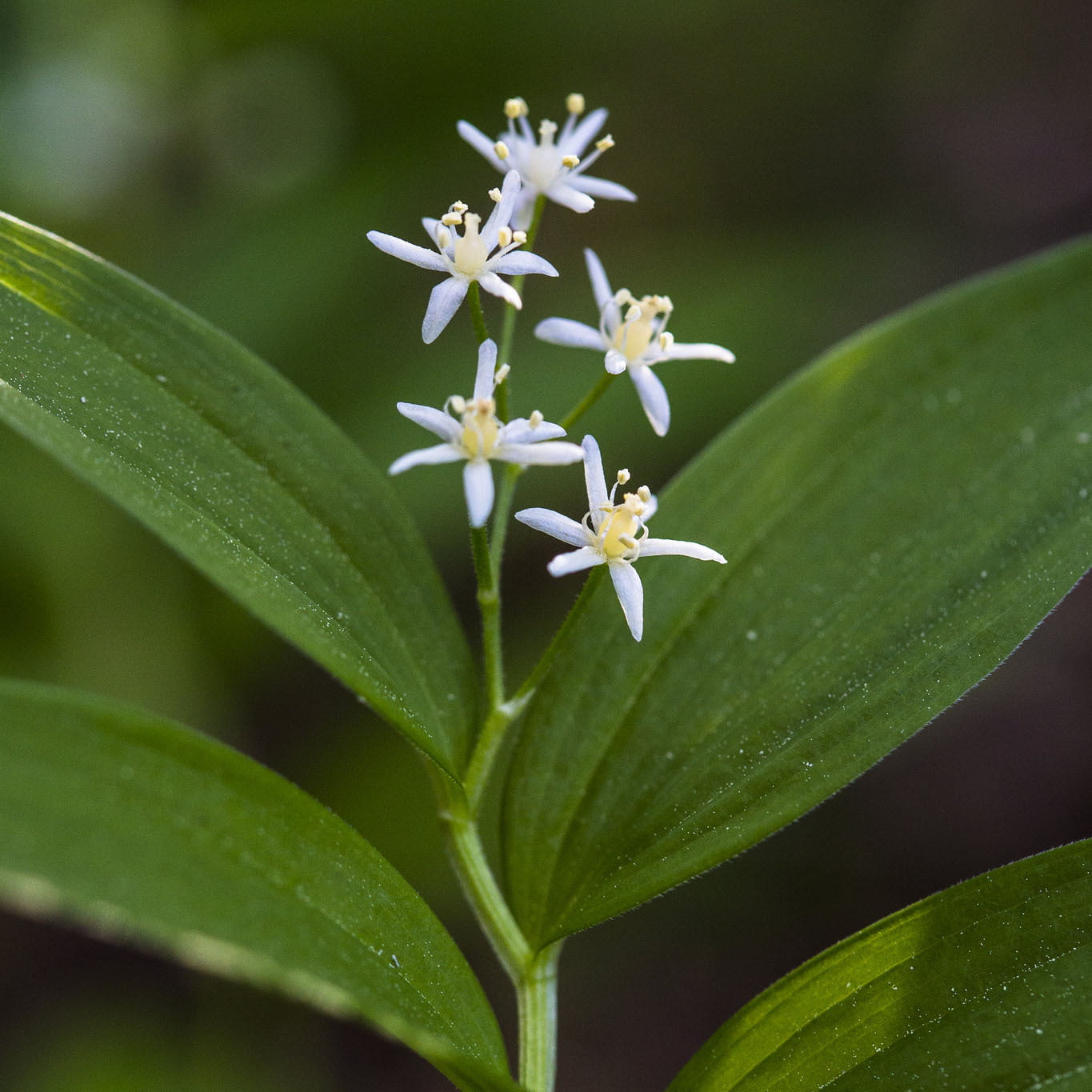
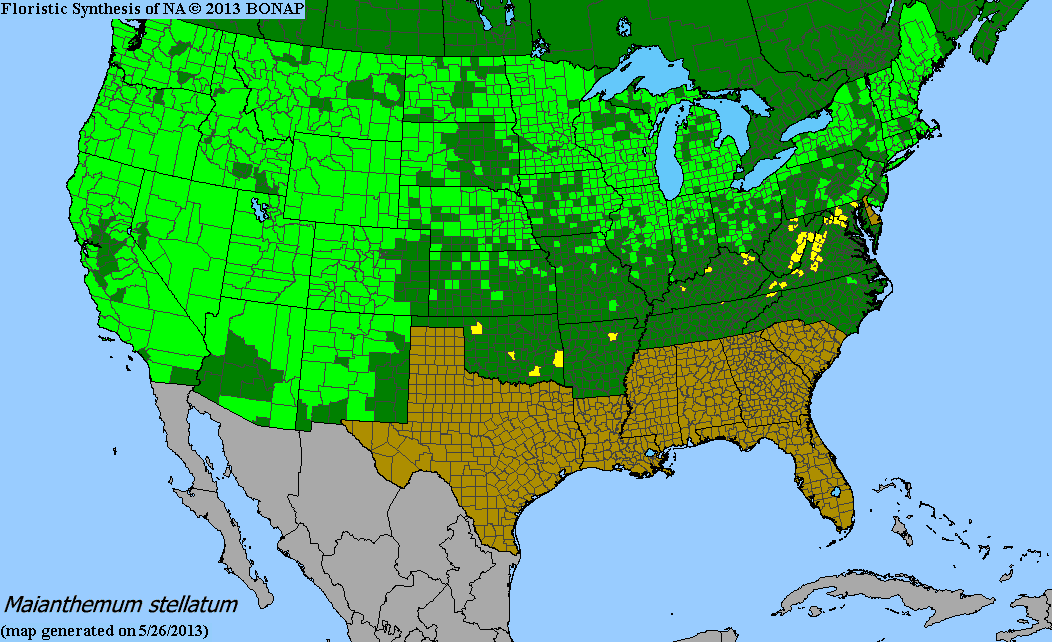
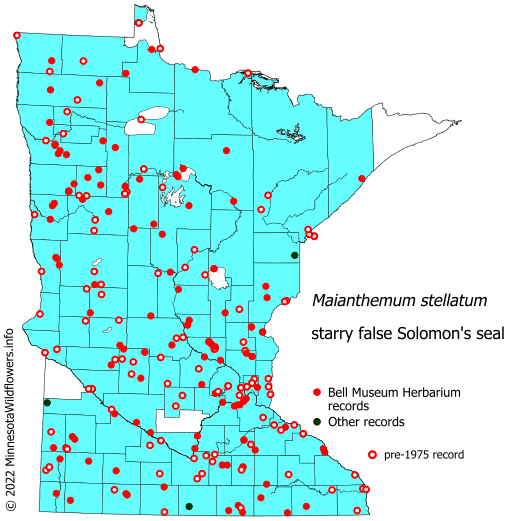
maps used with permission from MN Wildflowers
Maianthemum stellatum Gallery
Maianthemum stellatum Gallery
